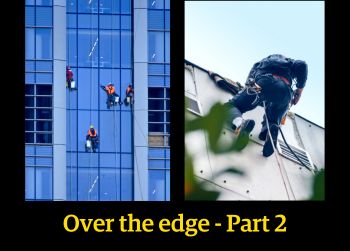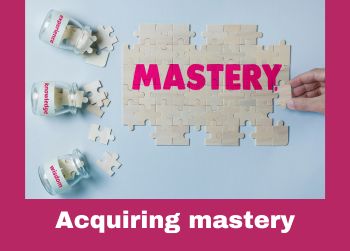Last week, in Part 1 of our look at Te Whanganui-a-Tara’s abseilers, we talked to Anaru Kerei and Beth Dugdale of Wellington Abseiling Maintenance (WAM) about their business.
This week we profile a former employee, Enzo Fantone, whose passion for climbing led him to undertake an abseiling course prior to finding work with WAM.
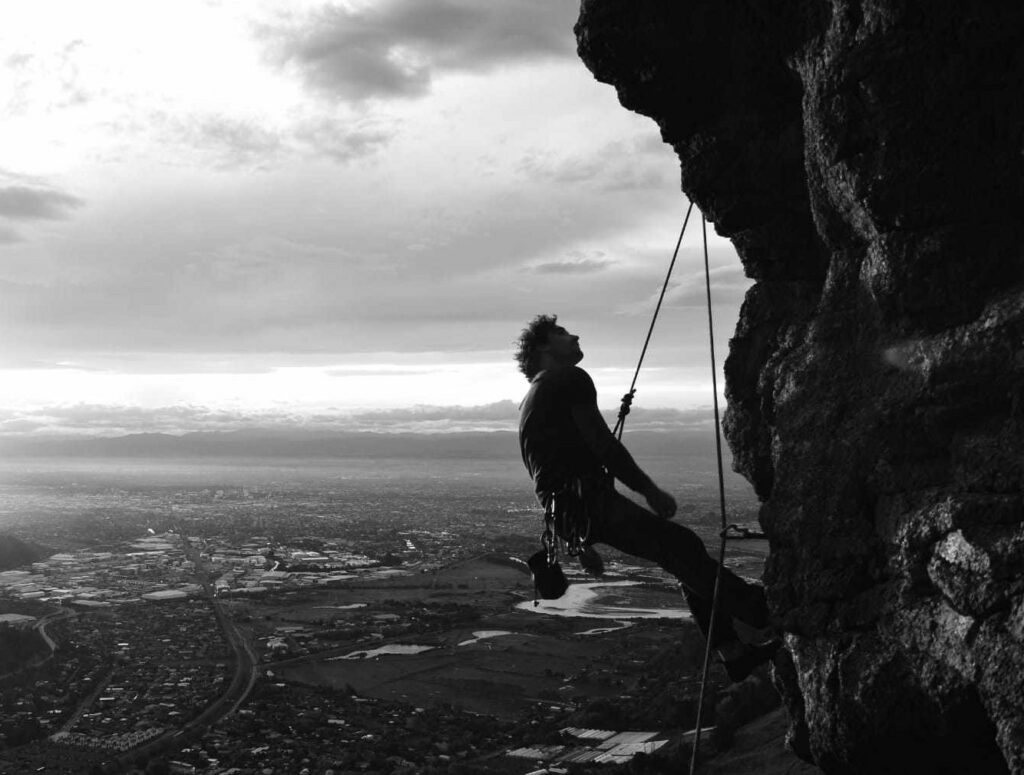
Enzo Fantone loves to climb. The 23 year old Frenchman came to Aotearoa on a working visa at the beginning of 2023. He was picking fruit in Central Otago when a casual offer to go climbing introduced him to a sport that immediately hooked him.
“I’ve always been attracted to outdoor activities. What I like about climbing is, first, the social abilities you develop. Climbing is just the moment where you take time to understand the other. It’s also really important because you have life between your hands so you have to be clear. You have to be 100 percent transparent in the way you talk and the way you understand the other.
“Then there is this body awareness that I really like too. It’s a nice sport because its slow. You don’t have to go fast. It’s about one move after the other. It’s a type of meditation when I go on the wall.
“It’s like playing chess on the rock. And you’ve got four different points, and you place them in a different way. And I think I really like this fact that you don’t have to rush. You’ve got all the time you want and it’s just you, the rock and the person belaying you.”
On a climb one day Enzo “met this guy and he was like, in full gear, and looking really professional. I started talking to him and I asked him what he did for a living. He told me he was abseiling and was based in Christchurch. We just started talking and I was fascinated by how much knowledge he had on climbing, through abseiling.”
“I was like “Oh, I want to get better at that”. I want to get better at climbing and I want to explore also the rope access. And also, getting paid for that is even better.”
When the fruit picking finished Enzo made his way north to Wellington, working hospitality jobs along the way, but still with a thought of how he could turn his passion for climbing into outdoor work.
Exploring Wellington’s CBD, he spotted a sign with an abseiler. Feeling he had nothing to lose by making enquiries about possible work opportunities, Enzo was fortunate to have the door answered by Anaru Kerei, owner of Wellington Abseiling Maintenance (WAM).

Enzo explains, “Here in New Zealand you have IRATA. It’s like a course that is possible to do everywhere in the world. With IRATA you can work everywhere in the world. When Anaru told me that I was like “Alright, I’m going to look for that”. He told me about this course place that is based in Plimmerton – TARA”.
“They were offering a course that was costing $2400, so that’s a pretty big amount. I really wanted to invest that type of money to try changing my way of living. I’ve been travelling for five years and stopped studying at 18. I’ve got hospitality experience so it was my gateway to the world, to earn money. But it was also a place where I got a little bit stuck because it’s like the only big knowledge that I got. So everywhere in the world where I was travelling, my source of revenue was hospitality. I didn’t feel like I wanted to keep going in this way. I realised I didn’t want to live this life forever”.
Enrolling in TARA’s Level 1 Rope Access Technician course Enzo learned “… how to be safe on a rope, how to go up, how to go down. You learn [about] the specificity of the forces, all the angles you can do with your rope. What’s bad for the ropes, what’s good for them. Just a big aspect of being at heights and safe.” After completing the week long course, Enzo returned to WAM.
“The first day I met Anaru I asked, “Are you searching for workers?” and he was like “Yeah, we’re a bit short of workers at the moment” (with two workers overseas on extended stays).
“So I think I was kind of a replacement for WAM. A little bit shortened time. So I ask him “If I did the course would you employ me after that?” And he was like “Yeah, if you do the course I will definitely employ you and we will talk about it”. I was quite happy when he told me that. So I did the course at the beginning of August, finished on the 11th and began with WAM on the 14th”.
WCL: Is this stage one of an ongoing qualification?
Enzo: It is. IRATA have a system of three different levels. You’ve got level one. That’s like dipping your toes. Then if you want to pass your level two, you need to have a year of work in rope access, plus one thousand hours.
WCL: So it’s like an apprenticeship?
Enzo: Yes, it’s definitely like that. From what I know about Level 2 it’s like knowing a bit more about how to rescue people. The more you go higher, the more you go on level 2, level 3, the more knowledge you will have for rescuing people in different cases.
WCL: Are you going to go for your thousand hours?
Enzo: Oh yeah.
WCL: You won’t be doing all that in your time here, so is the work you are doing now laying a base for when you return to France?
Enzo: I’ve got a plan when I go back to France, in May. I’m going to work taking care of the trekking path where I live, in the French Alps. They need an abseiler. Basically what we’re going to do is like rigging from trees and taking care of the path, making sure that everything is safe in the mountain area. I’m happy to discover this part of abseiling because it’s in nature. It’s like different step.
When I started abseiling I was like “Oh wow! You can do a job that you like and it’s outdoors. That’s cool!” The next one is to do a job that I like, that’s in nature. So it’s getting closer to climbing. And yeah, I’m definitely going to go deeper into abseiling.
WCL: Is this volunteer work or a paid position?
Enzo: It’s a paid position. It’s like communal work. And I think we’re working four days a week and it’s a team of ten people. It goes from May through to September-October.
WCL: Then what happens in the off season? Would you travel or look at working a contract in another country?
Enzo: My plan as far as I can see, is to do this next summer in France. Then I would like to do some more diverse work in abseiling. And try to catch some good contracts. I would like to travel a bit more with this work. It is definitely an easy way to make money and travel and do something I like.
I also realise that, with the people I met lately in Wellington, how good it is to be invested in ecology. I would like to, later, keep doing abseiling but being more meaningful to the planet. And do also work that I like, but also with value, with a meaning behind it. Not just doing a job for earning money but being fulfilled in a way of being like “Oh, that was a nice day, I was outside. I did physical exercise”
WCL: Are you required to renew your qualifications every couple of years or will you need to do refresher courses?
Enzo: From what I remember, every three years if you don’t pass any new level, you need to do a refresh. Because rules are changing quite often. So yeah, every three years, if you didn’t upgrade your level of IRATA you need to do a refresh. But if you do a course in between that, I think it’s all good.
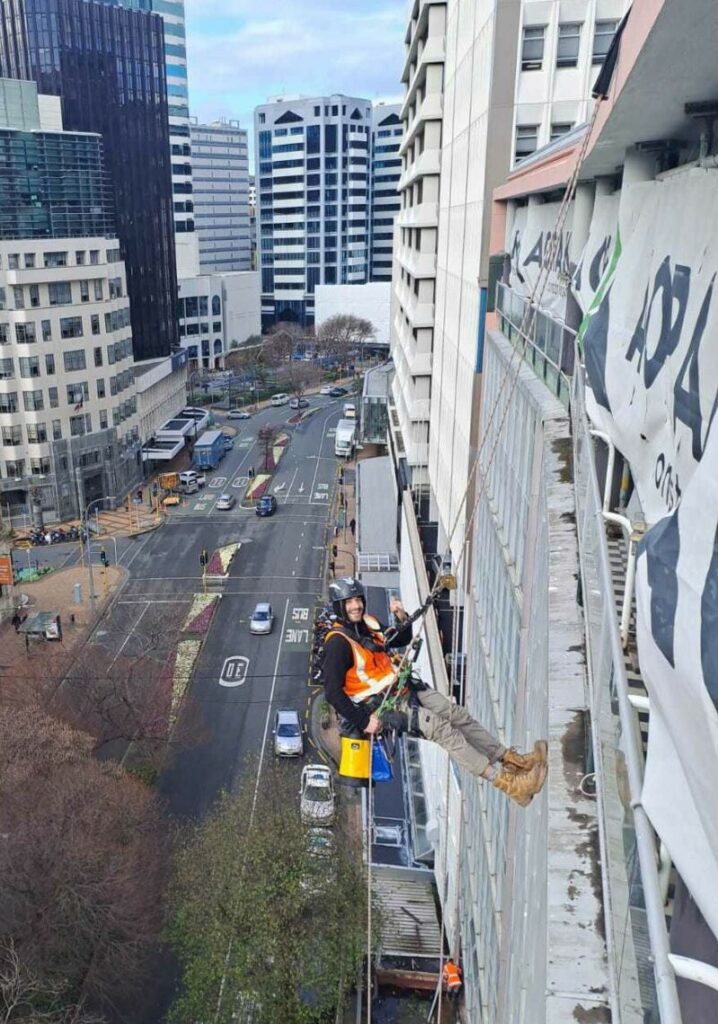
WCL: What’s the tallest building you’ve been up?
Enzo: I would say the tallest building is 16 floors. You do three metres per floor so it would be 50 metres.
WCL: What’s it like? Tell me, as someone who doesn’t have a head for heights
Enzo: Actually when I go on high buildings like this I am always a bit scared.
WCL: But that’s a good thing, isn’t it?
Enzo: Yeah definitely. I think it’s always scary when you arrive at a new building and it’s also scary to be trusting in the equipment. People tell you “This is working, this is going to save your life” but in a human perspective you’re like, “You tell me this is going to save my life but I didn’t see that it can save my life”.
“You’ve got always this adrenaline coming through your body when you go to the edge and you go “That’s pretty high”
Going to the edge is like, not always the hardest part, but the thing that you need to improve because sometime you go to the edge with a bucket of paint or a bucket of water and soap so you need to make it clean. At the same time it’s like the scariest moment of your day.
Yeah, it is always scary to go for the first time of the day through the other side but it’s a nice feeling. I like it.
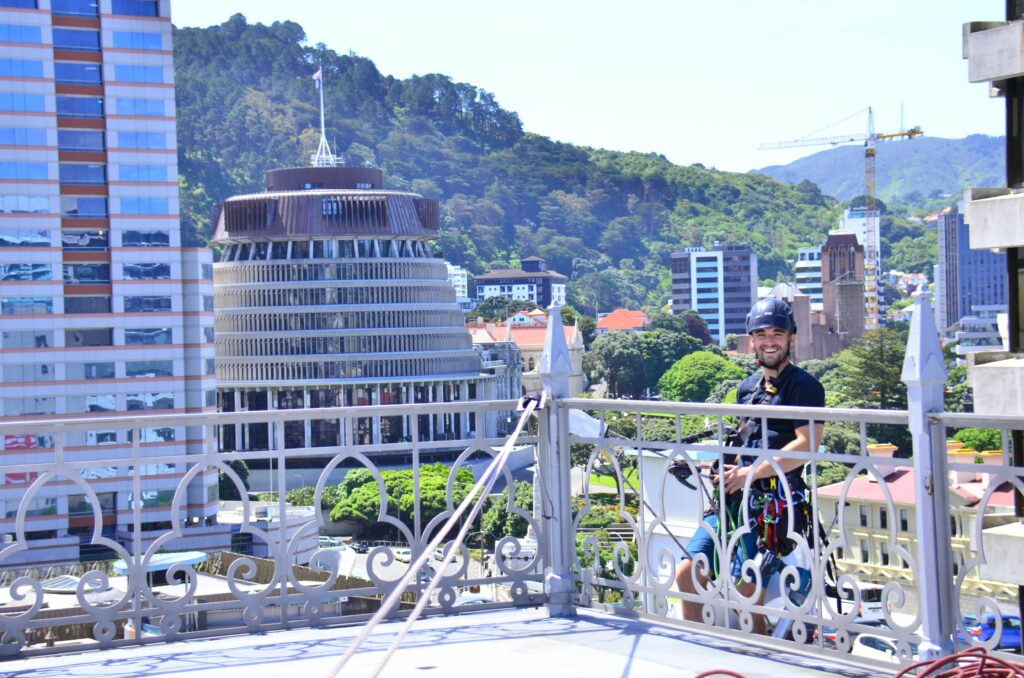
WCL: What do you like about working for WAM?
Enzo: It is just like a great, small business. A family business. And Anaru is just an amazing human. He understands everyone in the business. He made it a place where everyone feel good. It’s like a second home. It’s just great. I think he did a really nice picking of employees in the business. He’s got a really good team. Everyday at work is always different and always good. There’s younger people and older people, it’s a good range between 19 and 35. So everyone is understanding of each other, because everyone is always in a happy vibe. Everyone is carrying each other.
It’s also great because most of the time we work in teams of two. So it’s really nice if you want to start knowing someone. One day you are on a job with someone and the next day you are on another job with another person. It’s nice to get to know each one of them through the days and through the weeks.
Also Beth is working with Anaru and she’s like really, really calm and peaceful and bringing something really nice to WAM.
There are two women working there – Beth and Lynette. I really like what they bring to WAM.
WCL: Do you think abseiling is perceived as a male occupation?
Enzo: I think women don’t see it particularly as a career choice but at the same time I understand that in this world, this tradie world, [it] is really masculine. Sometimes it can be hard for a woman to say alright “I’m going to step into this world and make it happen for me”. [Of his colleague, Lynette] “I think it’s good that she got the courage to start in abseiling. She impress me so much”.
WCL: It also means WAM have given her that environment in which to develop and that says a lot about them and their culture.
Enzo: I would say that WAM is really open minded. And they give a chance to people. And everyone is so natural. You don’t have that hard culture of tradie. It’s just a good place where everyone feels good and talks about everything. Like when you arrive in the morning, there’s always small talk and it’s like a family. It’s really great like that.
WCL: Would you recommend this as a job to a someone else who might be wondering if this is the right thing for them?
Enzo: I think so, yeah.
I think this is a shortcut to a really nice job for people [like me] who left school early and don’t know what they want to do. I think abseiling is really nice because it’s so diverse. There are so many different jobs through abseiling and yeah, it’s just great… The more I’m going to travel, the more I’m going to spread this thing of “Oh, you don’t know what to do? You can do this. It’s great”
“Always since I started climbing I try to involve as much people into climbing. I’m going to do the same with abseiling. Definitely”.
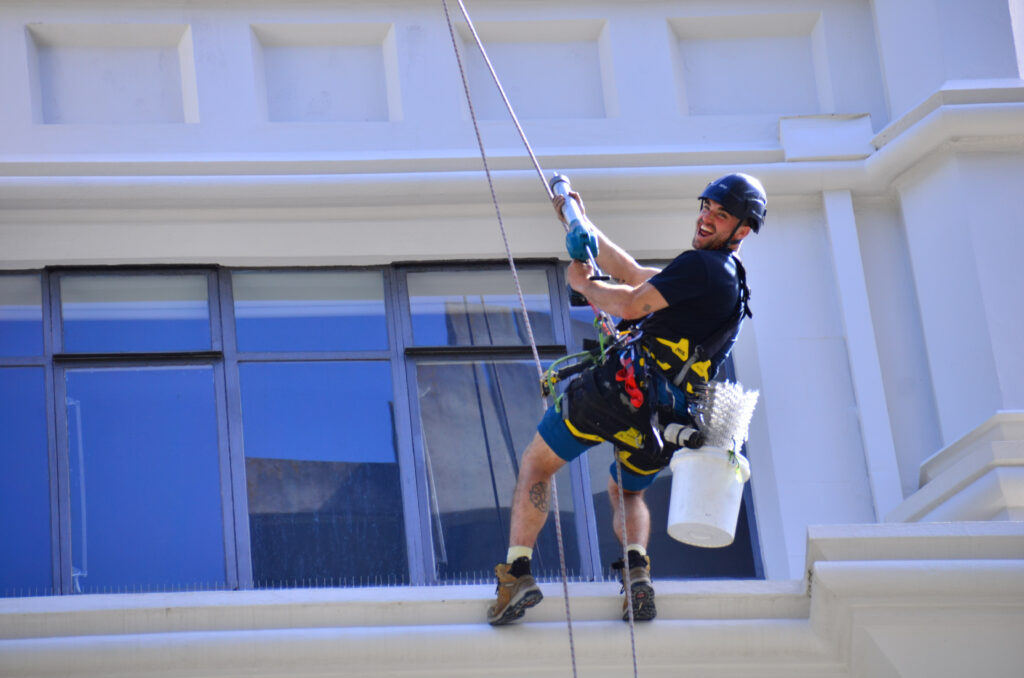
WCL would like to thank Enzo for his input into this blog piece along with the contribution of images.
For some library resources on climbing, see our list below.
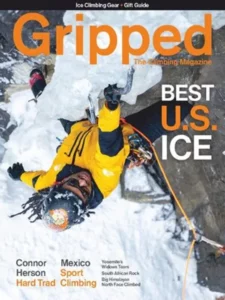
Gripped: the climbing magazine (Available via the online platform Libby)
Gripped offers the international world of climbing through the highest quality journalism and incredible pictures
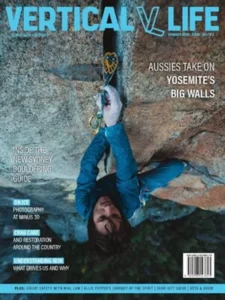
Vertical life (Available via the online platform Libby)
Vertical life is a climbing magazine in Australasia. At Vertical life we love climbing, be it beanied bouldering, clip up sport climbing, old school daddy tradding, big-wall suffering, alpine extremism, spandex clad competition climbing, desperate times call for desperate measures buildering, the lot – if it involves monkey business we will cover it
Climbing : from gym to crag : building skills for real rock / Lewis, S. Peter
“This work aims to help indoor climbers safely make the transition from a controlled climbing environment, which requires few technical skills and presents no objective dangers, to the outdoor environment, where the risks and rewards require a well-honed set of basic skills and awareness.” (Catalogue)
Climbing : training for peak performance / Soles, Clyde
“*Climbing exercises to build strength, endurance, flexibility, and aerobic fitness
*Up-to-date nutritional information to power your climbing training
*Climbing fitness tips that prepares you both mentally and physically
Climbers at all levels benefit from working to build core strength, opening the door to higher levels of achievement. This important edition in the Mountaineers Outdoor Expert series covers everything you need to improve your climbing fitness in ways that takes your performance to the next level. There is even instruction on yoga, Pilates, and herbal supplements, as well as a section on core training. Climbing: Training for Peak Performance also contains information about rehabilitation after an injury, plus several new training programs.” (Adapted from Catalogue)
Climbing manual : the essential guide to rock climbing / Shepherd, Nigel
“The Haynes Climbing Manual is a thoroughly modern introduction to this growing adventure sport, written by an experienced mountain guide, photographer and author. From getting started with equipment, clothing, fitness and basic skills through to advanced techniques and coping with tricky situations, this manual is packed with ……” (Catalogue)
The complete book of knots & ropework / Fry, Eric C.
“This guide demonstrates, step-by-step, how to tie 95 knots, hitches, plaits, bends, rope and wire splices, sennits and decorative ropework mats that should be useful to yachtsman and other outdoor sports enthusiasts. The nature of the rope and the lay are explained and uses suggested for each knot.” (Catalogue)
 The science of climbing training : an evidence-based guide to improving your climbing performance / Consuegra, Sergio
The science of climbing training : an evidence-based guide to improving your climbing performance / Consuegra, Sergio
“In The Science of Climbing Training, top Spanish climbing coach Sergio Consuegra provides an evidence-based approach to training for climbing. It is designed to help us improve climbing performance, whether we’re taking the next step in our training as we work towards our project, or if we’re a coach looking to optimise our athletes’ training”– Provided by publisher.” (Catalogue)
If you need more information please contact the Prosearch team at the library. We can help you find information across a range of perspectives and resources. All enquiries are treated in confidence.


